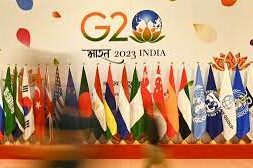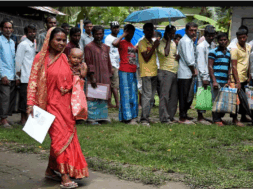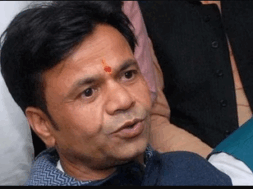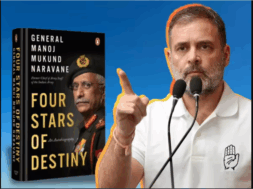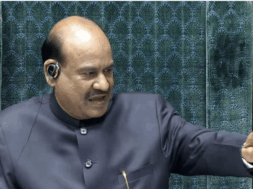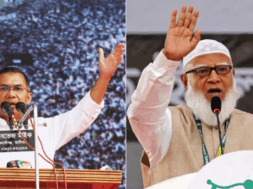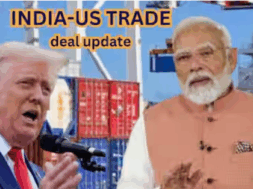
India – Europe and Trans-African Rail Corridors Announced at G20 Summit
Manas Dasgupta
NEW DELHI, Sept 9: The launch of two rail and shipping connectivity networks in direct competition to China’s own nation-spanning infrastructure program with a call to end “global trust deficit” were among the big takeaways from the New Delhi G20 Summit.
The African Union has been inducted as the new permanent member of G20, pushing forward a new world order and offering developing nations a greater say in global decision-making.
The first rail and shipping corridor was announced on Saturday by the United States president Joe Biden and his allies connecting India with Europe though the middle-east countries of Saudi Arabia, the United Arab Emirates, Jordan, Israel to the European Union, an ambitious project aimed at fostering economic growth and political cooperation.
Biden, Indian Prime Minister Narendra Modi and European Commission President Ursula von der Leyen announced the project during the annual Group of 20 summit of the world’s top economies. It is part of an initiative called the Partnership for Global Infrastructure Investment. “We think that the project itself is bold and transformative, but the vision behind the project is equally bold and transformative, and we will see it replicated in other parts of the world as well,” Jake Sullivan, Biden’s national security adviser, said.
The rail and shipping corridor would help to physically tie together a vast stretch of the globe, improving digital connectivity and enabling more trade among countries, including with energy products such as hydrogen. Although White House officials did not set a timeline for its completion, the corridor would provide a physical and ideological alternative to China’s own nation-spanning infrastructure program.
The White House gave no details on how the project would be paid for. Sullivan said the network reflected Biden’s vision for “far reaching investments” that come from “effective American leadership” and a willingness to embrace other nations as partners. He said the enhanced infrastructure would boost economic growth, help bring countries in the Middle East together and establish that region as a hub for economic activity instead of as a “source of challenge, conflict or crisis” as it has been in recent history.
Von der Leyen described the project as a “green and digital bridge across continents and civilizations.” She added that it includes cables to transmit electricity and data.
She also announced the second rail corridor, a “Trans-African Corridor” connecting the Angolan port of Lobito with landlocked areas: the Kananga province in the Democratic Republic of Congo and the copper-mining regions of Zambia. Speaking of the African project, Biden called it a “game changing regional investment” and said “both of these are huge, huge steps forward.”
Amos Hochstein, Biden’s coordinator for global infrastructure and energy security, laid out a rough timeline for the project over the next year.
In the next 60 days, working groups will put together a fuller plan and set timelines. The first phase will involve identifying the areas that need investment and where physical infrastructure can be connected between countries. Hochstein said the plans can be put into place over the next year so that the project can move onto setting up finances and construction.
Sullivan said the project started coming together after Biden visited Jeddah, Saudi Arabia, in July 2022, where he emphasized a need for greater regional economic integration.
In January, the White House started having conversations with regional partners about the concept. By spring, maps and written assessments of existing rail infrastructure in the Middle East were being drafted. Sullivan, and senior White House aides Hochstein and Brett McGurk, travelled to Saudi Arabia in May to meet with their Indian, Saudi and UAE counterparts. All sides have worked since then to finalize details of the agreement announced Saturday.
The parties also brought Israel and Jordan into the project. Saudi Arabia and Israel do not have diplomatic relations, though the White House has been pushing them toward normalizing relations.
Sullivan said the transportation project is not seen as a “precursor” to a potential normalization deal but he characterized Israel’s inclusion as “significant.” “The participants in this effort are focused on practical outcomes that deliver for their people,” Sullivan said. “And a corridor of this kind by dint of geography works best having Israel in as opposed to out and the countries participating prioritized that.”
The Delhi Declaration was adopted with China and Russia in agreement to it. It called on nations to uphold international law, including territorial integrity and sovereignty, international humanitarian law and the multilateral system that safeguards peace and stability. Trust deficit that has risen in recent years has to overcome by greater cooperation between member countries of G20.
The African Union became a full member of the G20. Welcoming the African Union’s Chairperson Azaly Assoumani to the table of the G-20 leaders, Prime Minister Narendra Modi said the inclusion of the African bloc would enhance the effectiveness of the G-20. After the EU, African Union is the second regional bloc to join the G20.
“Honoured to welcome the African Union as a permanent member of the G-20. This will strengthen the G-20 and also strengthen the voice of the Global South,” Mr Modi said in his inaugural remarks.
President Assoumani of Comoros, the current AU chair had expressed satisfaction over the way the AU’s advocacy for membership of G-20 has found support from various member states. Prime Minister Modi’s remarks also reflected the widespread support that the AU has received from all members of G-20.
Mr. Assoumani had said Africa has the potential to deal with the challenges that are currently troubling the continent and urged that the G-20 member countries should invest in the industrialisation of the continent and manufacture goods using the resources of Africa. “It is the duty of Africa to ensure job security in the continent so that our youth will remain on our continent and find the jobs that they require. But we also have to work hand in hand with Europe and Europe will have to help us train our people,” President Assoumani had said.
AU’s inclusion in G-20 was welcomed by Abdulla Shahid, Foreign Minister of Maldives who said, “This will surely enhance the representation, and voice of developing countries, in the deliberations and decisions of the Group.”
India had hosted the India Africa Forum Summit in 2015 and has expanded its diplomatic footprint in the continent by opening new missions in the member countries of AU. Apart from supporting the inclusion of African Union as a permanent member of G-20, India has also invited Nigeria, Egypt, and Mauritius as part of the ‘Guest Countries’ at the G-20 summit.
